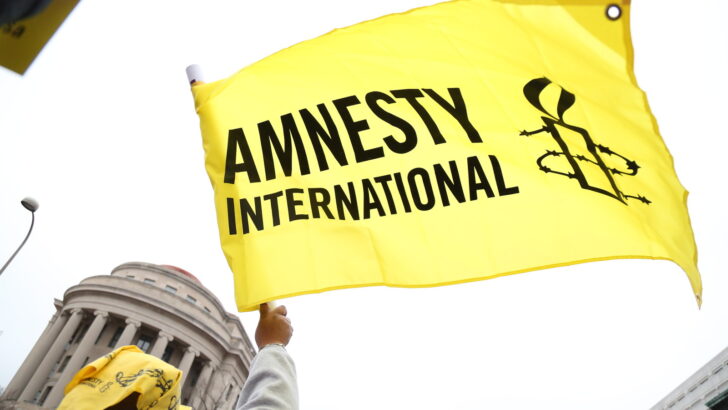The announcement last week that Amnesty International Ireland is planning to lay off the majority of its staff due to encountering a severe financial crisis is sad news for the individuals concerned.
Amnesty International is a celebrated international organisation that built its reputation on being a defender of human rights, supporting and advocating for the persecuted, and in many cases, putting lives on the line in some of the most difficult places in the world under some of the most authoritarian regimes.
But in recent years, Amnesty has changed. It has moved its focus from standing up for the persecuted to engaging heavily in the culture wars. In Ireland, Amnesty has prioritised engaging in the drive for abortion in Ireland, it has dedicated significant time and energy for the decriminalisation of prostitution, it involved itself in the same-sex marriage referendum, and in taking a partisan stance on the immigration discussion and supporting the government’s proposed hate speech legislation.
As recently as June this year, Amnesty launched a new campaign urging the government to liberalise Ireland’s ‘restrictive’ abortion regime and ‘gestational limits’ in parallel with a global campaign on abortion rights.
A look at Amnesty’s financial statements from recent years indicate that it has carried an operating surplus but also significant loan debt to be repaid to its parent organisation Amnesty International which seems to be driving the cost saving exercises.
However, the issue of mission creep is one that affects many NGOs. There is a tendency to lump all charities – or NGOs – together under one umbrella when criticising the growth and burgeoning influence that many of these organisations have on policy. There is a lot of nuance under that umbrella, as schools, churches, amongst other have charitable status under the law.
However, for organisations like Amnesty, and many large scale humanitarian and development organisations to move from their original purpose, and the purpose that they sell to their fundraisers – feeding the poor, saving lives, fighting poverty – to engaging in policy, advocacy, systems and belief change.
Often, the policy and advocacy work is at odds with the predominant culture of the countries these NGOs are working, being significantly more religious than where these organisations are headquartered. Often, under the guise of ‘social norm’ change, NGOs will seek to use their financial clout to change legislation in countries to be more aligned with the progressive policies that are in place in their own countries. Just as Amnesty in Ireland was able to use funding from abroad to influence the abortion debate in Ireland, many NGOs bring money from Ireland to promote cultural and social change in poorer countries.
While fundraising on their historical reputation for fighting famine, wars and natural disasters, funds are then spent on issues that many of their supporters would have no idea about. Some organisations seek to introduce comprehensive sexuality education into the curriculums in conservative countries, often undermining religious and cultural traditions, and family values.
There is a broad and fuzzy line that separates what are the appropriate issues for international NGOs who raise funds and are headquartered in the progressive global north to be addressing in faraway poorer countries and what they should not be doing. Increasingly secular, even faith-based organisations, are unfriendly to the religious and conservative beliefs of the countries they work in and seek to undermine them.
It may be clear that working to stop female genital mutilation is a worthy moral cause, but the line is less clear when NGOs seek to change the attitudes and beliefs – and the laws – around the permanency of marriage, gender roles, abortion, school curriculums, religious teaching and the likes.
Amnesty moved far from its original purpose yet continued to raise funds based on its legacy as a genuine human rights defender.
Increasingly staffed with people who desire to change the world through policy papers from behind a computer rather than people with a missionary zeal or vocation to do corporal works of mercy, international NGOs obsess internally about ‘decolonising’ their organisations, while seeking to export belief systems from the global north to the poorer south.


 Photo: Amnesty International
Photo: Amnesty International 